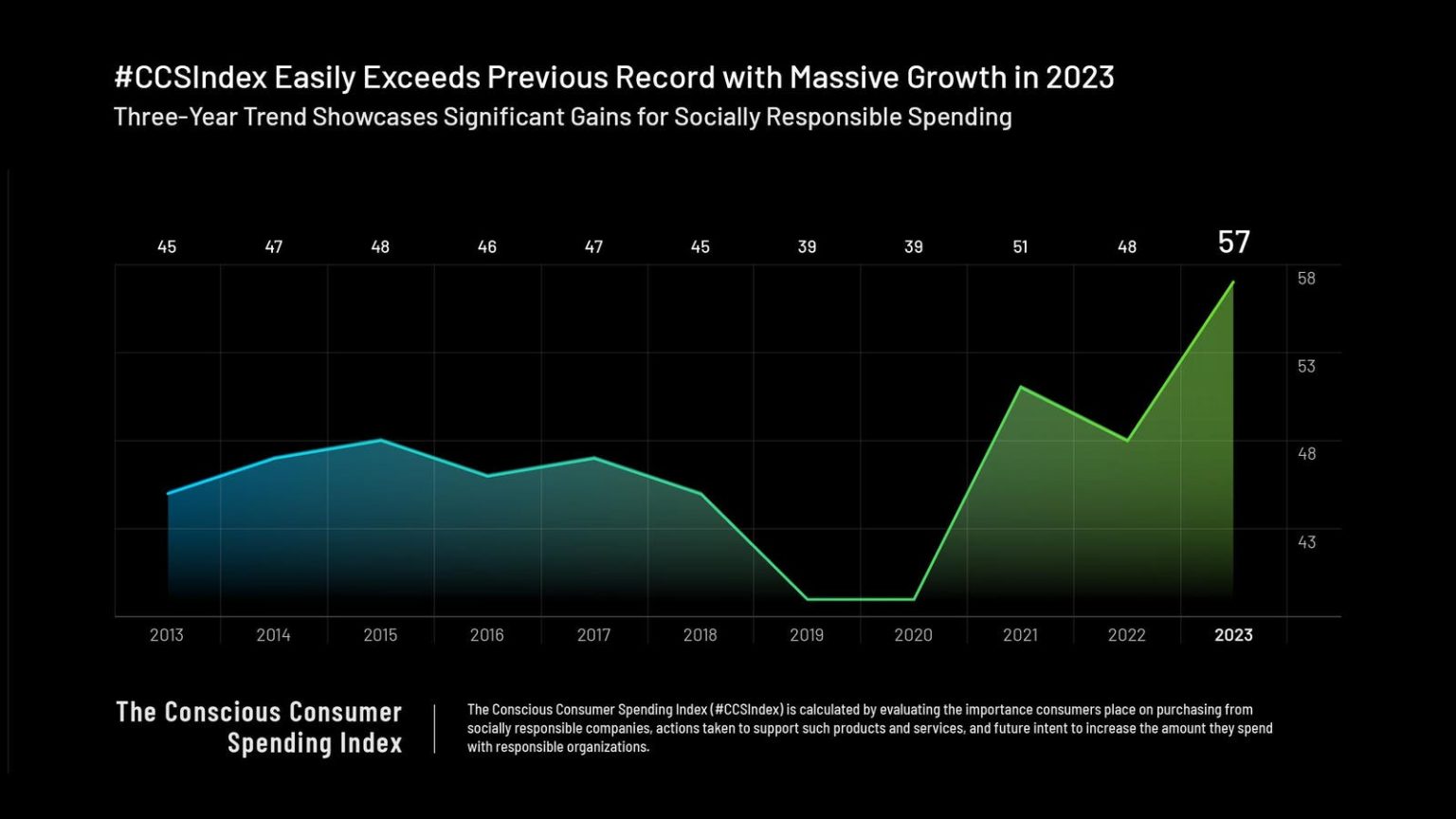Conscious Consumerism Cools Amid Economic Anxieties, Yet Partisan Divide Narrows
The landscape of socially responsible consumerism experienced a notable shift in the past year, marked by a decline in spending alongside a subtle yet significant narrowing of the partisan gap in attitudes toward such purchases. The latest Consumer Spending Index (CCSIndex), a long-running benchmark study tracking consumer appetite for ethical consumption, charitable giving, and environmentally conscious practices, reveals a complex interplay of economic pressures, societal optimism, and evolving political perspectives. While the overall index score dipped, the data hints at a potential turning point in the mainstreaming of conscious consumerism.
The 2024 CCSIndex registered a score of 50, a 12% decrease compared to the previous year. While this marks a retreat from recent highs, the index remains well above historical levels, surpassing the 37 recorded in 2019 and securing its position as the third-highest score since the study’s inception in 2013. This nuanced picture suggests that while economic realities may be temporarily dampening spending, the underlying commitment to ethical consumption remains relatively strong. Concurrent with the spending dip, charitable giving witnessed a surge, with 59% of respondents reporting financial contributions to nonprofits in the past year – the highest level observed since 2017. This potentially indicates a prioritization of direct charitable contributions over purchases from socially responsible brands in times of economic constraint.
The CCSIndex score, calculated by assessing the importance consumers place on purchasing from socially responsible companies, actions taken to support such products and services, and intent to increase spending with responsible organizations, provides a comprehensive gauge of consumer sentiment. Even a single point fluctuation in the overall score signifies a substantial shift in consumer attitudes. The observed decline, according to Heath Shackleford, founder of Good.Must.Grow, the marketing consultancy administering the Index, can be attributed in part to prevailing economic anxieties. The rising cost of living, reflected in the all-time high proportion of respondents (50%) citing the price of socially responsible products as a barrier to purchase, appears to be impacting consumer behavior.
Further reinforcing the economic explanation, the success rate of socially responsible intentions – the proportion of consumers who follow through on their plans to increase ethical spending – plummeted to a historic low of 55%, significantly below the high 60s and low 70s observed in previous years. This decline strongly suggests that tighter household budgets are a primary driver of the observed spending contraction. Consumers, facing increased financial pressures, may be forced to prioritize essential expenditures, relegating ethical considerations to a secondary role in their purchasing decisions.
Beyond economic factors, the CCSIndex reveals a fascinating correlation between societal optimism and consumer spending habits. Individuals expressing a positive outlook on the world’s trajectory consistently demonstrate significantly higher index scores compared to their less optimistic counterparts. Interestingly, those occupying a neutral stance, perceiving the world as neither improving nor worsening, exhibit the lowest scores. Shackleford suggests that this apathy, rooted in the belief that individual actions are inconsequential, contributes to diminished engagement with conscious consumerism. Conversely, those who perceive the world as deteriorating appear more motivated to take action, potentially driven by a sense of urgency and the belief that their contributions can effect positive change.
The political dimension of socially responsible consumption continues to evolve, albeit with persistent differences. While a partisan gap remains, a notable shift is underway. Between 2020 and 2024, Republican voters demonstrated a 25% increase in their CCSIndex score, outpacing the 6% increase observed among Democrats. This convergence suggests a growing recognition of the importance of ethical and sustainable business practices across the political spectrum. However, the gap remains significant, with supporters of Kamala Harris in the last election achieving a score of 56, compared to 45 for non-voters and 44 for Donald Trump voters. This enduring disparity highlights the ongoing influence of political ideology on consumer behavior.
The CCSIndex also tracks brand recognition within the realm of socially responsible organizations. For the sixth consecutive year, Amazon secured the top spot in the unprompted top-of-mind awareness survey, garnering twice as many mentions as the Salvation Army, which ranked second. Amazon’s dominance, surpassing even established players like Patagonia, the American Red Cross, Goodwill, and Habitat for Humanity, raises intriguing questions about the public perception of corporate social responsibility. While Amazon’s logistical prowess and extensive reach undoubtedly contribute to its prominent position, the company has also faced criticism regarding labor practices and environmental impact. This juxtaposition highlights the complexities and contradictions inherent in defining and evaluating corporate social responsibility in the modern marketplace. The continued prominence of Amazon in the public consciousness underscores the need for ongoing scrutiny and dialogue regarding the true meaning and impact of socially responsible business practices.












